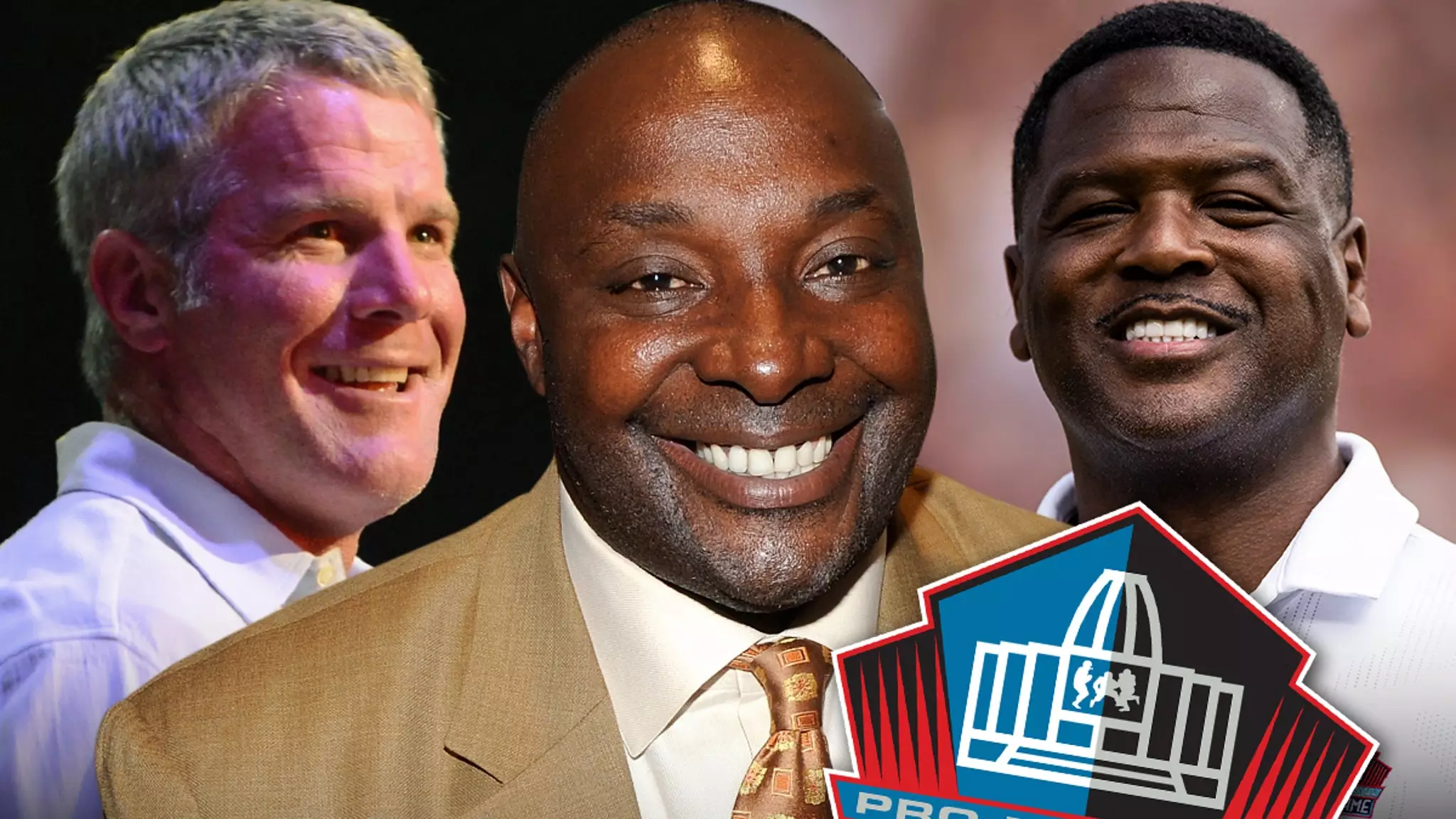This week, the conversation surrounding Sterling Sharpe’s potential induction into the Pro Football Hall of Fame has been rekindled, thanks to the passionate defense mounted by two Green Bay Packers legends, Brett Favre and LeRoy Butler. Both former teammates have voiced their convictions that Sharpe, despite his relatively short playing career, significantly impacted the NFL and deserves a place in Canton, Ohio. Their statements have brought forward an essential debate about career longevity versus impact—a topic that football fans and analysts often grapple with.
Sterling Sharpe’s professional career lasted just seven seasons, primarily due to injuries, which makes his numbers all the more remarkable. In 112 games, he recorded 595 receptions, totaling 8,134 yards and notched 65 touchdowns. While his stats might initially seem less impressive compared to players with longer careers, they are a testament to Sharpe’s skill, conviction, and football IQ. Favre, who was Sharpe’s quarterback, highlighted that Sharpe may not have possessed the physical attributes that often define elite players but showcased one of the highest football intelligence levels he had ever seen. This perspective invites us to consider the qualitative aspects of performance alongside traditional statistics.
LeRoy Butler’s assertion that Sharpe could have achieved “G.O.A.T.” status further complicates the discourse surrounding his Hall of Fame candidacy. If we consider the injuries that truncated his career, we are left to wonder: how many more records could he have established? Metrics such as receptions, receiving yards, and touchdowns do not alone determine a player’s greatness; the context always matters. Sharpe’s importance in the Packers’ offense during the 1990s played a pivotal role in elevating the team’s competitiveness. His contributions extended beyond mere numbers; he was a playmaker capable of changing games.
Sterling Sharpe is one of five finalists competing for three available spots in the Hall of Fame’s upcoming class, and the irony of facing off against former coach Mike Holmgren adds an intriguing layer to the narrative. Favre expressed hope that both he and Sharpe would be enshrined together, underscoring the communal nature of the Hall of Fame—it’s framed not just as individual recognition but as a culmination of collaborative achievements on the field. The anticipation surrounding the Hall’s class of 2025 announcement during Super Bowl week heightens the stakes, as momentum builds in Sharpe’s favor.
The campaign for Sterling Sharpe’s Hall of Fame induction, championed by Favre and Butler, prompts all football fans to reflect on the criteria that constitute greatness in the NFL. Is it fair to weigh lengthy careers more heavily than unprecedented short-term impact? This ongoing dialogue not only influences decisions made by the Hall of Fame selectors but also shapes how fans perceive the legacy of past stars. As we approach the essential moment of selection, one thing is clear: Sterling Sharpe’s contributions to football are undeniable, compelling us to reconsider our understanding of greatness in the sport.

